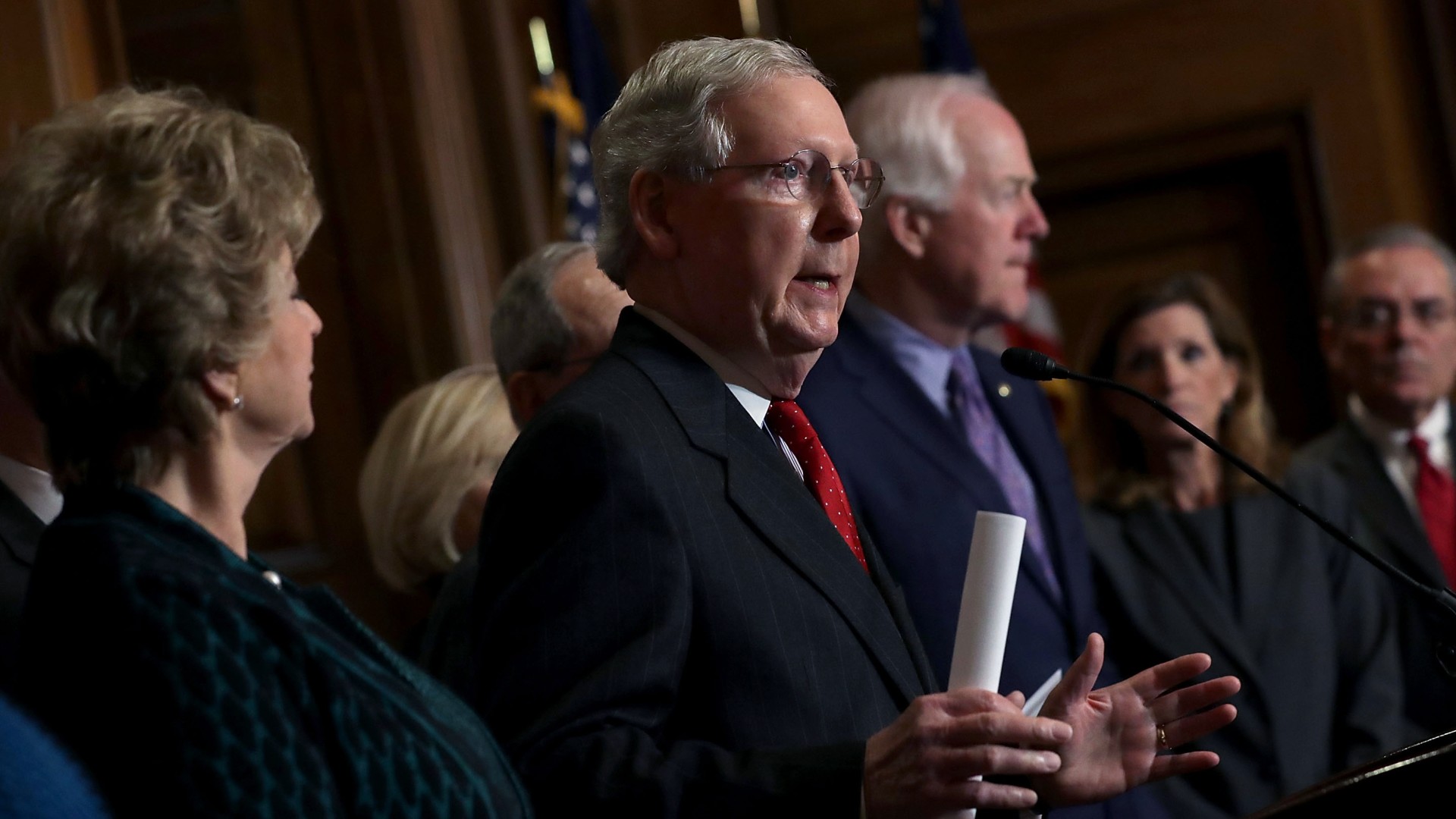Andrew Lichtenstein/Getty Images
A recent report from Credit Suisse spawned headlines around the world with its finding that the world’s richest 1 percent own 50.1 percent of global wealth. As the rich have seen huge increases in wealth, the vast majority of humanity has lost out. The gulf between the haves and have-nots is now as wide as it has been in decades.The United States has not been immune to this trend. In a December 2013 speech, former President Barack Obama recognized income inequality as a threat to society, declaring he believed that it is “the defining challenge of our time.” While in office, the former President embraced several initiatives, like raising taxes on the wealthy and expanding health insurance coverage, that aimed to narrow the gap between the rich and the poor.But the Trump Administration has largely ignored the problem. In fact, the new president has spent months promoting policies that would instead widen the income gap. Not only has he repeatedly tried to repeal the Affordable Care Act, but he is now celebrating the passage a tax bill that will principally benefit the wealthiest Americans.In some ways, this is surprising. During the 2016 presidential campaign, Trump vowed to close the carried-interest loophole, which gives preferential tax treatment to wealthy investment managers. And he ran a populist campaign, ultimately winning more than 40 percent of voters who made less than $50,000 annually.Regardless of the reasons underlying Trump’s change of heart, rising income inequality threatens to profoundly harm American society. Large income disparities are associated with adverse economic effects, including reduced investment and growth. They can skew incentives as the wealthy increasingly shift their efforts toward protecting their position in society, and they have been linked to environmental damage and political instability.As a physician, however, I'm naturally more concerned about the consequences of rising income inequality on America’s health. Unfortunately, decades of research have shown that in this area, too, it can have a devastating impact.
More from VICE:
Unequal communities in the United States experience lower levels of social cohesion, civic engagement, and trust, which has a corrosive effect on the way people act toward their fellow community members. Residents in states with higher levels of income inequality, for example, tend to score higher on measures of competitiveness, and lower on measures of affability and generosity. These findings are not limited to the United States: Europeans in more unequal countries, for example, are less willing to act to improve the lives of their fellow citizens.People living in these communities experience adverse health outcomes. Internationally, income inequality has been linked to higher rates of drug use, infant mortality, mental illness, and obesity. A 2008 study that examined over 100 countries also found an inverse relationship between income inequality and life expectancy.Examining the former member and allied states of the Soviet Union sheds some light on the extent of this relationship. Countries that experienced the greatest increases in income inequality after the fall of the USSR, for example, suffered the greatest declines in life expectancy.High levels of income inequality also appear to blunt the positive health effects associated with economic growth. Between 1960 and 2007, the economy of Latin America boomed, growing more than 8 percent per year on average. A 2010 study of 22 countries in the region unsurprisingly found that increases in gross domestic product over this period were associated with increases in life expectancy and decreases in infant mortality. However, the changes were 71 percent and 32 percent smaller, respectively, during periods when income inequality was growing.The United States has had a similar experience. While the life expectancy of the average American has generally been rising—except for the past two years—residents of states with higher levels of income inequality have experienced smaller gains. More recent research has found that individuals living in communities with higher levels of income inequality are more likely to die prematurely. And rising income inequality has been linked to higher homicide rates.These findings underscore the need for urgent action to narrow the income gap. While the Trump administration has not shown any serious interest in the matter to date, there are several policy initiatives it could consider to address the issue. Raising taxes on the wealthy, increasing government transfers to the poor, and increasing the federal minimum wage would directly help to close the disparity. Further expanding health insurance coverage would protect uninsured Americans from medical bankruptcy. And improving educational outcomes would increase the earnings potential of graduating students.Given the state of politics in Washington, the prospect of any of these measures going into effect in the near future is slim. In the meantime, as Congress continues to push economically regressive policies, America will experience persistent, and growing, levels of income inequality. Our health, unfortunately, is likely to suffer.Kunal Sindhu is a resident physician in New York City. You can follow him on Twitter @sindhu_kunal.Read This Next: The Science of How Poverty Affects the Brain
Advertisement
More from VICE:

Unequal communities in the United States experience lower levels of social cohesion, civic engagement, and trust, which has a corrosive effect on the way people act toward their fellow community members. Residents in states with higher levels of income inequality, for example, tend to score higher on measures of competitiveness, and lower on measures of affability and generosity. These findings are not limited to the United States: Europeans in more unequal countries, for example, are less willing to act to improve the lives of their fellow citizens.
Advertisement